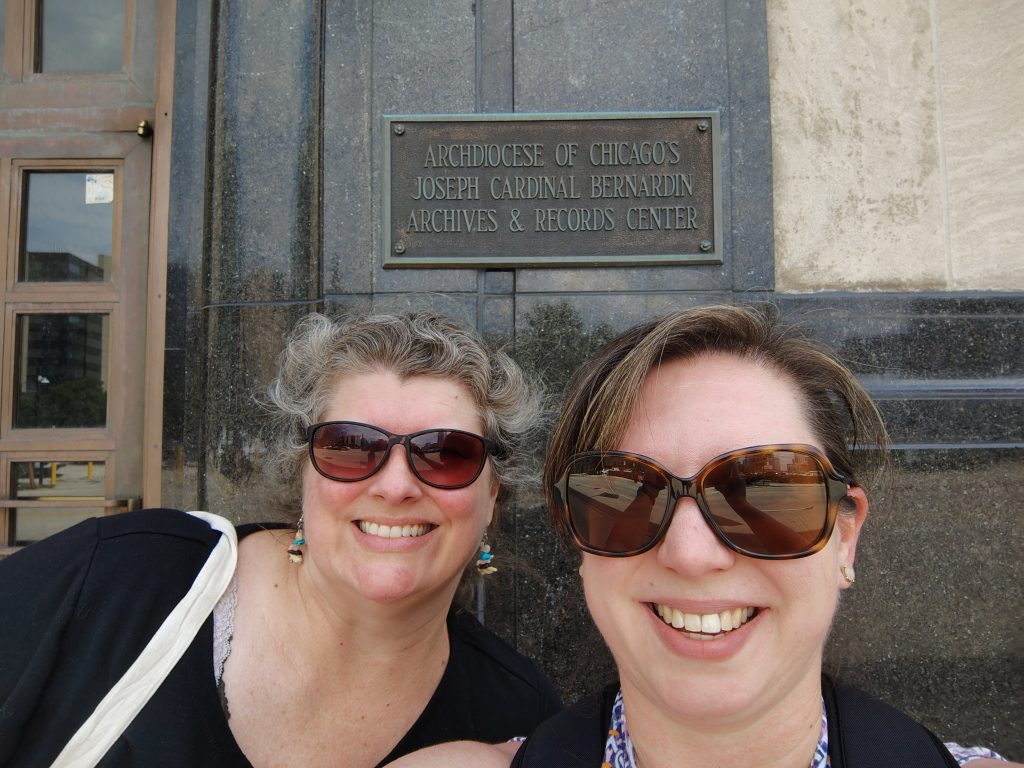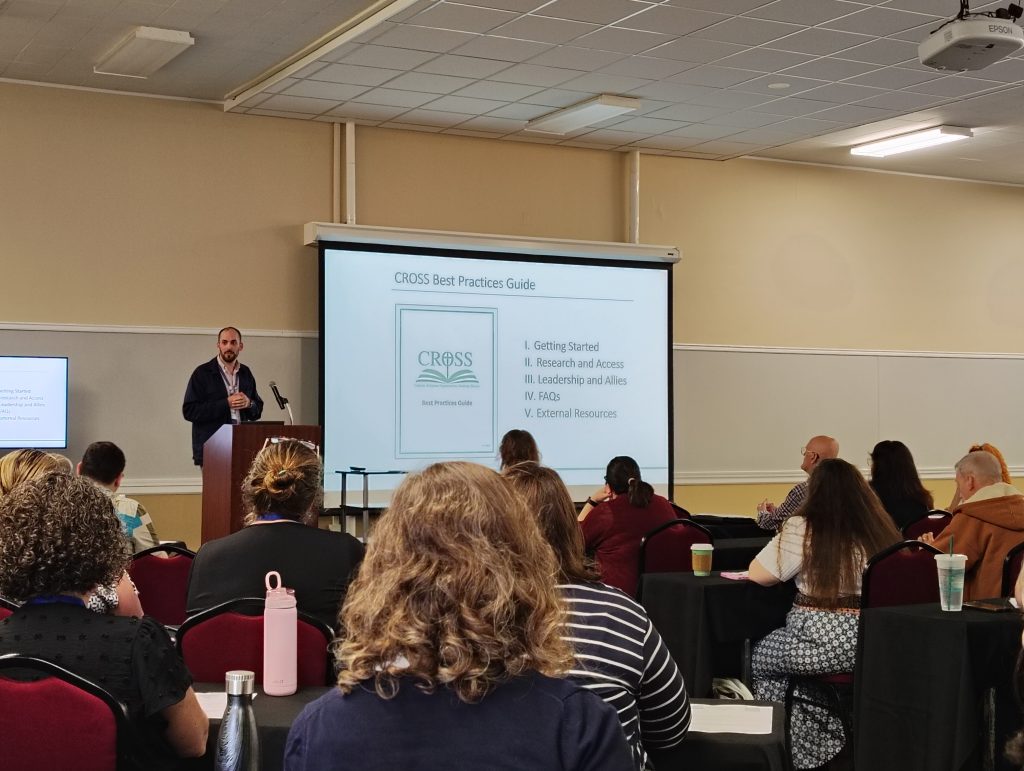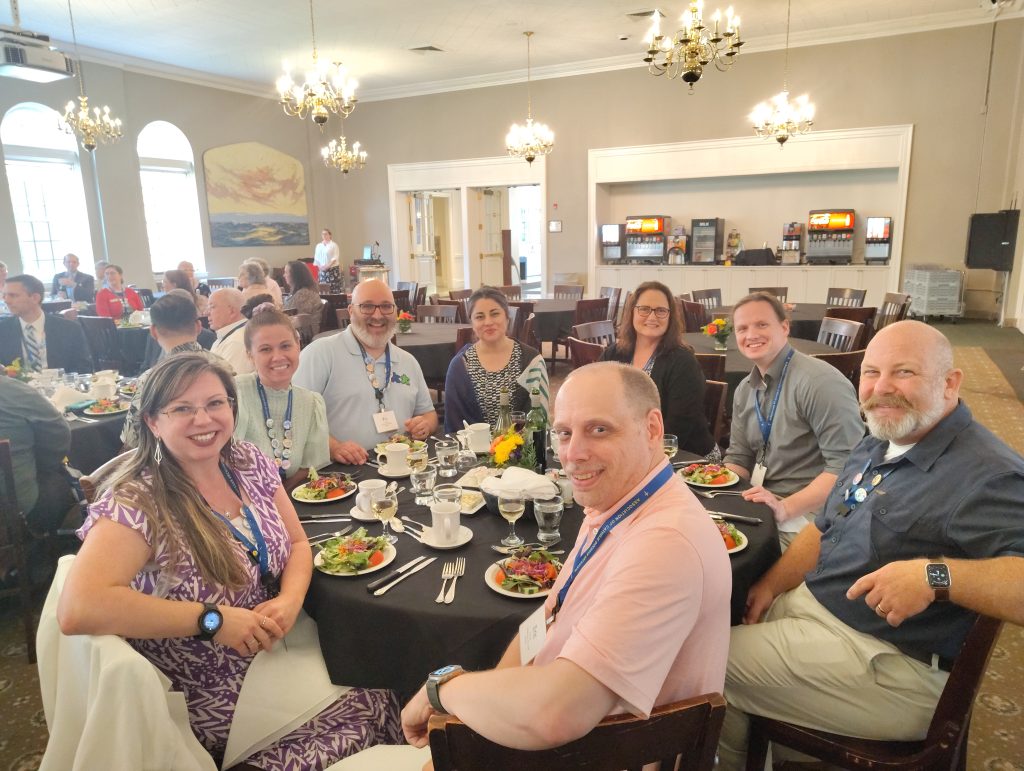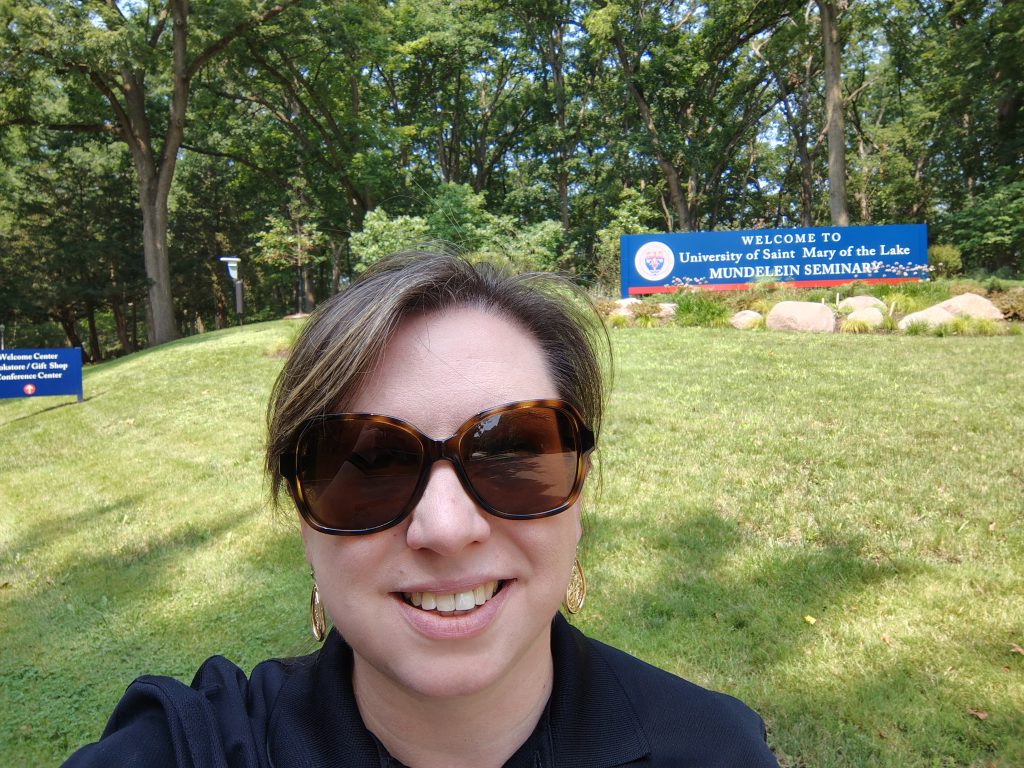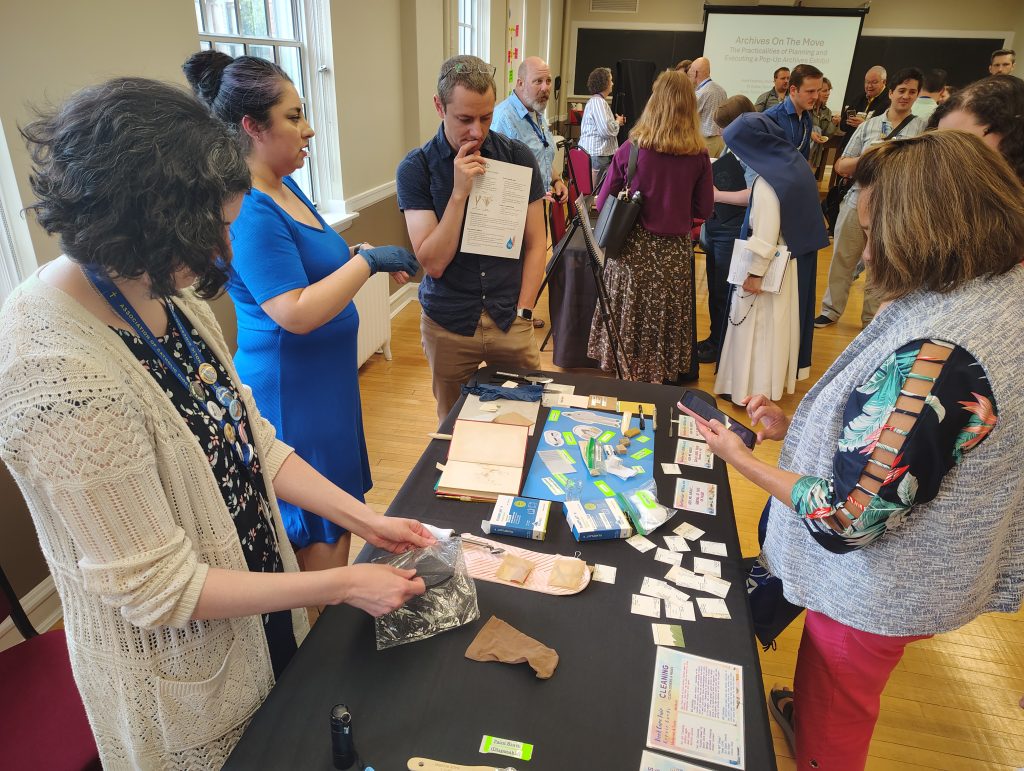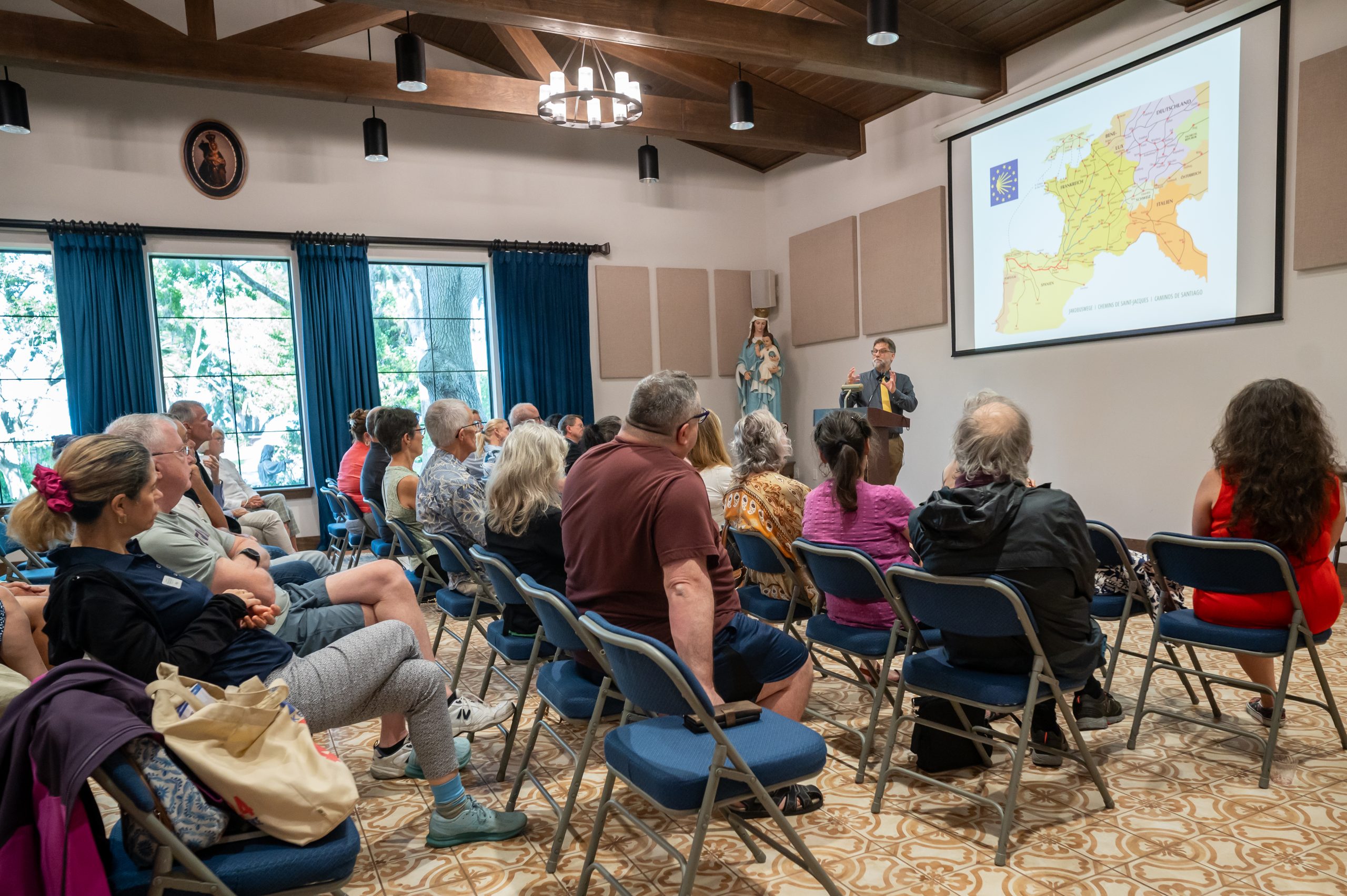It is again October, and we are celebrating American Archives Month! I started this blog one year ago to educate non-archivists on the profession. Therefore, education is an appropriate topic for my post today!
I often get the question, “How did you end up as an archivist?” I usually explain that I am a rare breed because I was educated in the profession in which I work. This is neither a second career nor a career into which I fell. I chose it, or rather it chose me. I have a Master’s in Library Science with a concentration in archives and records management. To qualify that, while I technically have a degree in “libraries,” if you dropped me or my classmates in a library, it would be a foreign territory! Our education overlapped somewhat with the library studies students; however, I learned theory from the archives perspective. So, while my library studies classmates were being trained in cataloging (which is much more than memorizing the Dewey Decimal System), I was learning arrangement and description (how to systematically organize and inventory collections so they can be found and used).
That was 20 years ago. Archival theory doesn’t radically change over time, but practical application and technology evolves. To keep up, I attend workshops and conferences for continuing education. My favorite, by far, is the biannual meeting of the Association of Catholic Diocesan Archivists (ACDA). Held for a week every two years at St. Mary of the Lake Seminary in Mundelein, IL (just north of Chicago), about 100 diocesan archivists gather to discuss topics in Catholic archives practices. It’s an opportunity to learn about what my counterparts are doing and catch up with friends at other Dioceses—some of these relationships I’ve had for 20 years.
ACDA’s Conference theme this year was “Navigating Archival Trails.” Each session discussed a different aspect of approaching tricky or sensitive circumstances. Some of these, like the sessions on managing architectural drawings, handling difficult interpersonal situations, copyright, digitizing photos and a hands-on learning lab for book care and exhibit construction, could be applied to any archival program. Other sessions were particularly germane to Catholic archives.
Every conference starts with a full-day workshop, “Introduction to Archives & Records Management.” The primary purpose of ACDA is to provide professional support and education for Catholic archivists. I discovered early on that many of its members “fell” into their positions without training or background. Some of my colleagues began as chancellor’s secretaries or part-time historians, then were appointed diocesan archivists and given access to a closet of “old diocesan records,” which they had to make sense of without guidance. While archives & records management is not rocket science (I always argue that once you learn basic theory, its application is intuitive), basic professional standards exist. This first session is always designed to give those without professional education or training the necessary tools. It also is concurrent with other sessions for the seasoned professional or returning Catholic archivist.
This year’s keynote speaker was Dr. Shannen Dee Williams, an associate professor of history at the University of Dayton. Her keynote, titled “Still Mining the Forgotten: Black Catholic Women and Girls and the Challenges of Archives,” detailed her experience utilizing Catholic archives to explore the experiences of Black women as religious sisters and nuns. This research contributed to her book, Subversive Habits: Black Catholic Nuns in the Long African American Freedom Struggle (Duke University Press, 2022). Dr. Williams spoke about the frequent roadblocks and frustrations attempting to gain access to religious order and diocesan archives with records of Black and enslaved women. As private institutional archives, diocesan and religious congregations are not held to the same standard of blanket public access as government archives. It is a professional best practice to balance the “right to know” against confidentiality in a well-written access policy. However, some diocesan and religious congregations have decided to arbitrarily close their collections to the public or serious researchers. They ask questions like, “Will sharing the experiences of Black women who took the habit make the diocese or order ‘look bad’?” or “Will we have to explain and take responsibility for certain unpopular decisions that were made in the past?” Ultimately, Dr. Williams advocated for sensible and equitable access policies, urging religious order and diocesan archivists to promote Black Catholic women’s authentic and accurate experiences.
Continuing the theme of the Black Catholic experience, we attended a presentation on Catholic Religious Organizations Studying Slavery (CROSS). This newly formed group (established in 2021) is supported by the USCCB’s Committee Against Racism “to promote open and honest access to the historical record…to achieve a more comprehensive and truthful telling of enslavement within the Catholic Church in the United States” (from CROSS’ Mission Statement, find out more here). Colleagues from the Archdiocese of Washington DC and Archdiocese of Boston shared CROSS’ newly published “Best Practices Guide.” In a following session, colleagues from the Archdiocese of New Orleans and the Diocese of Baton Rouge shared their experiences unearthing plantation cemetery records from their diocesan collections.
Another Catholic record-keeping issue discussed in two sessions was how to handle Catholic institution closings and mergers. Colleagues from the Archdioceses of New York, Baltimore and Philadelphia shared their experiences taking in records from religious orders who have completed their charism or needed administrative support. It was interesting to hear about the different agreement terms negotiated between the diocese and the order. In a similar session, colleagues from the Diocese of Pittsburgh and Archdiocese of St. Louis share their experience merging parishes and closing schools. I’ve participated in closing about 8 parishes and 15 schools, but since that occurred much earlier in my career, I found this session a good refresher. However, with the way Southern Dioceses are growing, I don’t expect to need those skills any time soon.
For me, the most essential part of the conference is reinforcing relationships with colleagues from other dioceses. We also have Mass with our Bishop-Moderator (Most Rev. Thomas J. Paprocki, Springfield, IL) and social time to enjoy each other after a full day of meetings. Through ACDA, I have met some fascinating people and professionals who have helped me to grow. For that, I am incredibly grateful and look forward to our conference in Mundelein every two years.
And that, folks, is how to educate an archivist!

